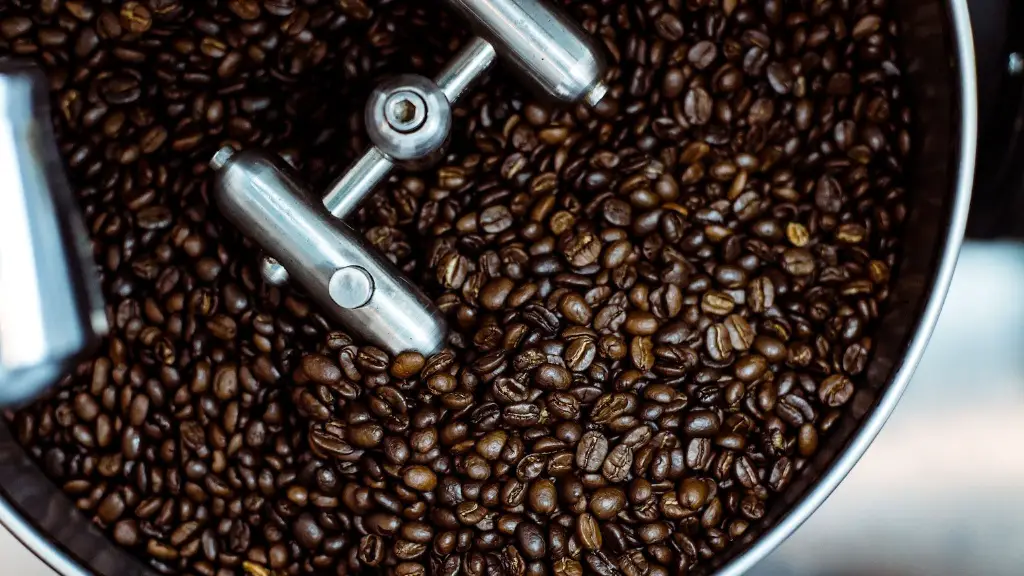If you’re an avid coffee drinker, you’ve probably wondered at one point or another if it’s ok to drink a lot of decaf coffee. The answer, like to a lot of questions in life, is complicated. Decaf coffee does have some pros and cons that should be discussed before making any decisions about your own caffeine consumption.
To start with, decaffeinated coffee still contains a small amount of caffeine─around 2-14 mg per 8-ounce cup. This amount is much lower than the caffeine contained in regular coffee, with 95-200 mg per 8-ounce cup. On the other hand, since caffeine is still present in decaf coffee, drinking large amounts might have a certain effect on some sensitive individuals.
In addition to small amount of caffeine contained in decaf, another potential issue could be acid. Decaf coffee contains about the same amount of acid as regular coffee. As a result, it can aggravate symptoms of digestive problems such as upset stomach, diarrhea, and acid reflux.
Considering all the potential cons, what are the pros to drinking decaf? One benefit of decaf could be that it still contains many of the beneficial antioxidants found in regular coffee. It is known that polyphenols and chlorogenic acid, two powerful antioxidants, are still contained in decaf, even after the decaffeination process.
So, is it ok to drink a lot of decaf coffee? The answer is, it really depends on the individual. If you have a history of digestive issues, it’s probably wise not to drink decaf, to err on the side of caution. And if you are sensitive to even small amounts of caffeine, drinking a lot of decaf may mean you will still experience some of the side effects, such as restlessness and anxiety.
Coffee Addiction
Drinking a lot of decaf might also be an indication of a more serious problem – coffee addiction, or more scientifically known as caffeine dependence. Drinking more than 4 cups of decaf a day has been linked with the onset of mental health issues including depression and anxiety, as well as physical issues such as muscle fatigue, headaches and tremors.
An important thing to remember about caffeine dependence is that you can still be dependent on both regular coffee and decaffeinated coffee. Caffeine is still present in decaf, in some higher-than-typical amounts, and it is possible that a person can become addicted to the caffeine while drinking decaf.
Coffee addiction and other symptoms caused by overconsumption of caffeine can be managed. There are some simple lifestyle changes that can be made, such as drinking herbal teas instead of coffee, limiting caffeine consumption by splitting coffee consumption into several servings or making sure to drink decaffeinated coffee, drinking more water and getting enough sleep.
Variety of Coffee
Another factor to consider when deciding to drink a lot of decaf coffee is the variety of coffee itself. It is true that decaf coffee contains a small amount of caffeine and a certain amount of acid, but not all decaf is created equal. Every coffee variety can contain different levels of caffeine and acid, so it’s important to consider what type of decaf coffee you’re consuming and how it may affect your body.
For instance, Arabica and Liberica coffee species generally have lower levels of caffeine than Robusta, so a coffee labeled as ‘decaf’ could still contain a surprisingly high amount of caffeine. On the other hand, if bought and consumed correctly, Arabica and Liberica decafs will typically have a milder and sweeter taste compared to regular coffees, since these varieties are known to have higher levels of aromatic compounds.
One type of decaf that has become increasingly popular lately is Swiss Water Process Decaf. This type of decaf is produced using the Swiss Water Method, which involves immersing the beans in water and using activated charcoal to help remove the caffeine without compromising the beans’ other organic components. Swiss Water Process Coffees are usually low in acid, smooth in taste and have zero to low aftertaste.
Environmental Impact of Coffee
In addition to thinking about personal health when it comes to drinking decaf coffee, there are other considerations to make, such as the environmental impact of the beans themselves. Most coffee companies source their beans from plantations in countries close to the equator. It is important to make sure that the coffee beans are sourced from responsible farms, as most countries have laws and regulations governing the behavior of the farms and their operations.
It is also important to consider how the beans are processed and how they are packaged. The packaging materials used can have a significant environmental impact if they are not recycled or composted. Most companies are now using compostable or recyclable materials, and it is worth checking with your favourite coffee company to find out what materials they use for packaging.
Lastly, it’s also important to consider how the coffee is prepared and served. Making espresso with an energy efficient machine, for example, can reduce the energy consumption of the store or cafe significantly. It can also be beneficial to use fair trade coffee, making sure the farmers that produce it are paid fair prices and working in safe and comfortable conditions.
Making The Right Choice
When it comes to the questions of drinking decaf, the important thing to consider is caffeine sensitivity, health issues, the type of decaf being consumed, the environmental impact and whether or not coffee addiction is present. Making the right choice boils down to looking at the individual situation, taking steps toward making changes and learning more abut the benefits and drawbacks of decaffeinated coffee.
No matter what kind of coffee a person drinks, it is important to remember to consume everything in moderation. Regularly drinking large amounts of caffeine, whether from regular coffee or decaf, can put unnecessary strain on the body and lead to negative side effects, so it is important to be mindful of those effects.
Experts Opinions
Researchers have found that people who consume more than 4 regular cups of coffee per day are more likely to suffer from physical and mental health issues. On the other hand, drinking decaffeinated coffee can still be beneficial, as it still contains many antioxidants. Ultimately, it’s important to be mindful of the potential risks involved with drinking large amounts of decaf.
Dr. Janette Nesheiwat, a family and emergency medicine doctor, says that “Decaf coffee can still have some beneficial effects, as it still has many antioxidants. However, as with any food or drink, it is important to consume in moderation and be mindful of potential effects it could have on you and your body.”
Dr. Michael Roizen, a professor at the Cleveland Clinic Lerner College of Medicine, suggests that “It’s important to be aware of the risks and potential side effects of consuming large amounts of both regular coffee and decaf. If you are considering drinking large amounts of decaffeinated coffee, it might be wise to talk to your doctor first to find out more about the potential health risks involved.”
Effects On Performance
Caffeine has been found to have many benefits for performance, including improved focus and alertness. However, too much caffeine can also have an adverse effect on performance and energy levels. Drinking large amounts of decaf could be beneficial, as it still contains some caffeine, but without the risk of over-stimulation or potential adverse effects.
Sports nutritionist Dr. Trevor Theilen suggests that “The effects of caffeine on performance are well known, and even though decaffeinated coffee contains some caffeine, it has much lower amounts. When choosing to consume caffeine, it is important to be mindful of the potential side effects, as well as the amount being consumed. However, decaf can still be beneficial, as it can help improve focus while avoiding the potential risks of over-stimulation.”
Health Impacts
A major benefit of decaffeinated coffee is that it still has many of the health benefits that regular coffee does, such as the presence of antioxidants, fiber and minerals. Many studies have found that regular coffee can even have an effect on reducing the risk of certain diseases, such as diabetes, heart disease and certain cancers.
While decaf does have some health benefits, one should keep in mind the potential for digestive distress and caffeine sensitivity caused by drinking large amounts of decaf coffee. Registered dietitian, Dr. Lorena Lopez suggests, “When it comes to drinking coffee, the best option is to enjoy it in moderation. Decaffeinated coffee can still offer health benefits, but it is important to be aware of how it can affect your body and any potential risks that drinking large amounts may bring.”
Conclusion
Decaffeinated coffee is an option for those looking to reduce their caffeine intake, while still enjoying the taste of coffee. Drinking large amounts of decaf can be beneficial, provided that it is consumed in moderation, and any potential risks are taken into consideration. Ultimately, the best way to determine if drinking a lot of decaf is the right choice for you is to weigh the benefits and drawbacks, and make an informed decision that best fits your lifestyle.





